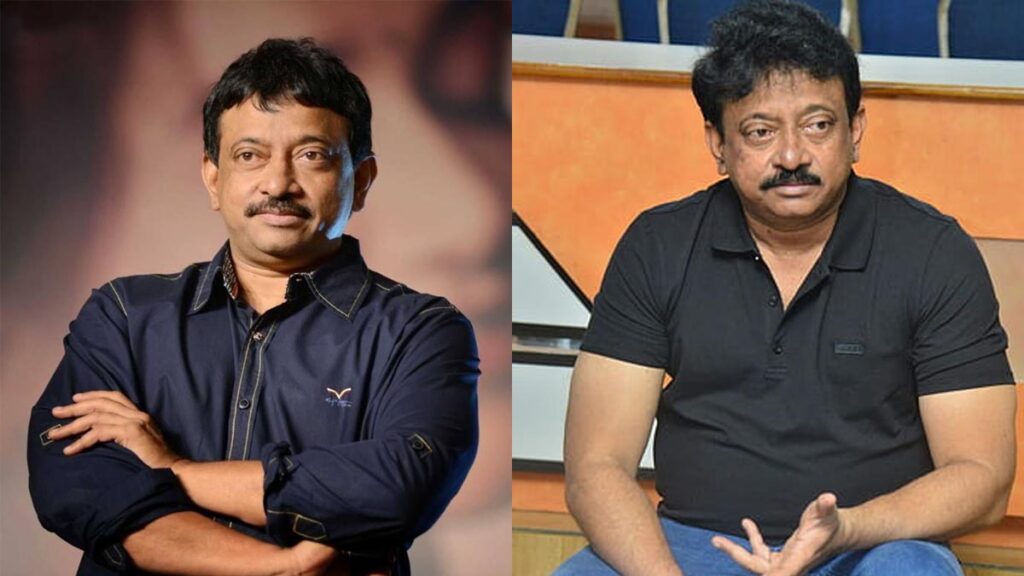Ram Gopal Varma, a name synonymous with controversial filmmaking and outspoken opinions, has once again found himself at the center of a heated legal and political debate. Known for his audacious tweets and unconventional approach to controversies, Varma has often dismissed legal notices and arrest warrants with an almost cavalier attitude. However, recent developments suggest that the situation this time is significantly more serious.
As of November 25th, Varma appears to be avoiding direct confrontation with the authorities. The police from Prakasam district, Andhra Pradesh, have made attempts to reach him at his residence, only to find him absent. Teams have been dispatched to Mumbai and Coimbatore to locate him. This escalation raises questions about the gravity of the charges against him and his response to them.
The Origin of the Legal Battle
The issue stems from a social media post by Varma that promoted his pre-election film Vyuham. In this post, Varma used morphed images of prominent leaders like Nara Chandrababu Naidu, Pawan Kalyan, and Nara Lokesh, placing their faces onto female characters. The post sparked outrage and led to a complaint by Ramalingam, a TDP Mandal Secretary from Maddipadu village in Prakasam district.

An FIR was registered on November 12th, and the police subsequently summoned Varma for questioning on November 19th. Varma, citing prior commitments and a packed schedule, failed to appear, requesting an extension to November 24th. As the situation escalated, Varma and his legal team filed a quash petition and an anticipatory bail plea in the Andhra Pradesh High Court.
Legal Proceedings and Responses
Varma’s advocate, Balayya, has made the following arguments in his client’s defense:
- Cooperation with Authorities: Varma has responded to the police notices and expressed willingness to cooperate. His absence, they argue, is due to genuine professional commitments.
- Virtual Meetings as a Solution: Given concerns about potential arrest during in-person questioning, Varma’s team proposed a virtual meeting.
- Media Speculations: Balayya emphasized that rumors of third-degree treatment against Varma are baseless and only serve to sensationalize the issue.
Despite these assurances, the police remain firm. Prakasam SP A.R. Damodhar has made it clear that the choice between virtual and in-person questioning lies with the authorities, not Varma. He criticized Varma’s perceived lack of respect for the process, stating that such requests should have been made earlier.
The Political Angle
The controversy has also drawn comments from political figures. Andhra Pradesh Chief Minister Y.S. Jagan Mohan Reddy recently condemned what he called “revenge politics.” He questioned the legitimacy of targeting Varma when his films, including Vyuham, have passed the scrutiny of the censor board. Reddy highlighted the importance of free speech and the risks of stifling dissent through legal intimidation.
Analyzing the Larger Picture
The situation presents a complex interplay of legal, political, and social factors. On one hand, the police are acting on a complaint that falls under the purview of defamation and potential misuse of social media platforms. On the other, Varma’s supporters argue that his actions fall under creative freedom and political satire.
This case also raises broader questions about the fine line between free speech and defamation. Should filmmakers and public figures be held to stricter standards when commenting on sensitive political issues? Or does this signify an attempt to curtail dissenting voices under the guise of legal enforcement?
Conclusion
The saga surrounding Ram Gopal Varma’s legal challenges is far from over. As the courts deliberate on his petitions and the police intensify their efforts, the outcome will likely have implications beyond this individual case. It will touch on issues of creative expression, political satire, and the boundaries of law enforcement in a democratic society.
Whether Varma’s actions are seen as provocative but harmless satire or as a calculated attempt to defame political figures, one thing is clear: this controversy will continue to spark debates in the public sphere. Only time will reveal which side of the story resonates more strongly with the public and the judiciary.
What are your thoughts on this issue? Is this a necessary correction to unchecked behavior, or does it pose a threat to free speech? Let’s discuss in the comments below!

